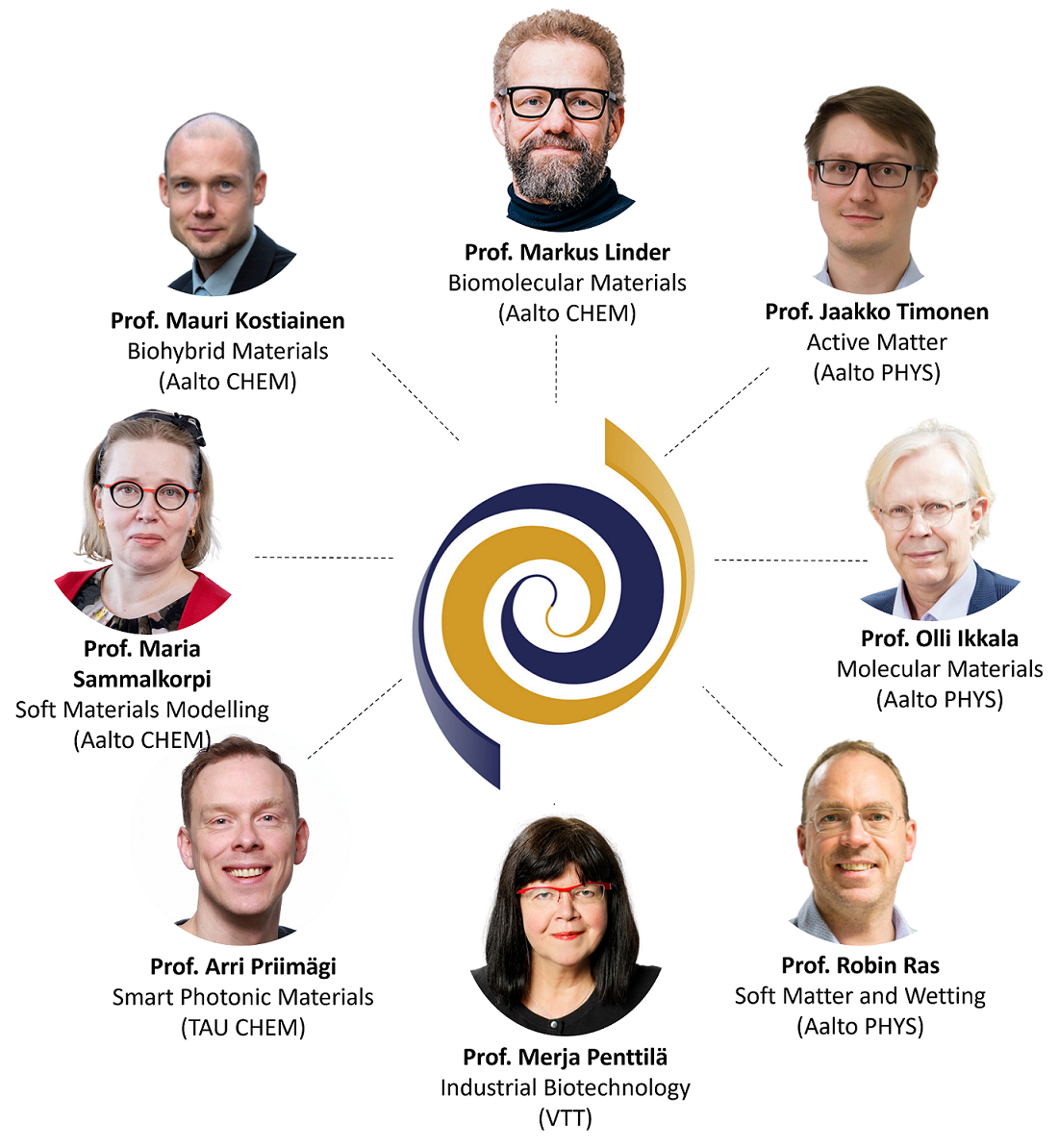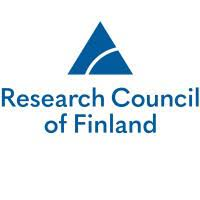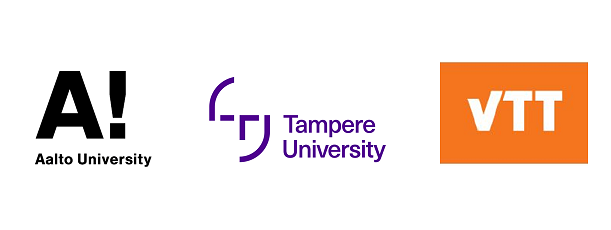
The Center of Excellence in Life Inspired Hybrid Materials (LIBER) was launched via the Center of Excellence Programme 2022-2029 funded by Research Council of Finland. LIBER aims to create dynamic and soft hybrid materials with capability to learn, adapt or response to the environment. LIBER combines expertise on molecular self-assembly, soft robotics, surfaces and interfaces, genetic engineering of proteins, biotechnological production of engineered biomolecules, and computational modelling.
LIBER consortium includes eight multidisciplinary research groups from Aalto University, VTT and Tampere University. The whole LIBER community consists of over 120 researchers including almost 80% doctoral students and postdoctoral researchers all together. The groups interact via regular bi-weekly seminars to share their recent achievements, discuss ideas and initiate collaborations. In addition, annual Spring symposia will gather the whole community to hear from the top international scientists about the state-of-the-art in the field. The annual Autumn workshops will also train our researchers with the skills and expertise equipping them to carry out their research and further for their career planning.
Tampere University contribution
We will develop materials that respond to several types of stimuli. Several approaches are explored using orthogonal stimuli, exploiting multicomponent structures, involving (magnetic) nanoparticles, liquid crystalline networks (LCNs), light responsive dyes (azobenzenes, merocyanine photoacids), polymers, and a wide repertoire of supramolecular constructs.
We will develop LCNs that combine the attractive combination of anisotropy and robust polymer network with mechanical deformability in response to several stimuli such as light, temperature, electric/magnetic field, or a mechanical trigger. Our particular goals are (i) to achieve remotely controlled soft-robotic materials that can be orthogonally driven with light and magnetic field, and (ii) to use environmental humidity as a gating signal to control/modulate the light-fueled actuation in LCNs.
Funding
Funding source
This project has been funded by Research Council of Finland, partner companies are research organizations.

Coordinating organisation
Aalto University
Partners



